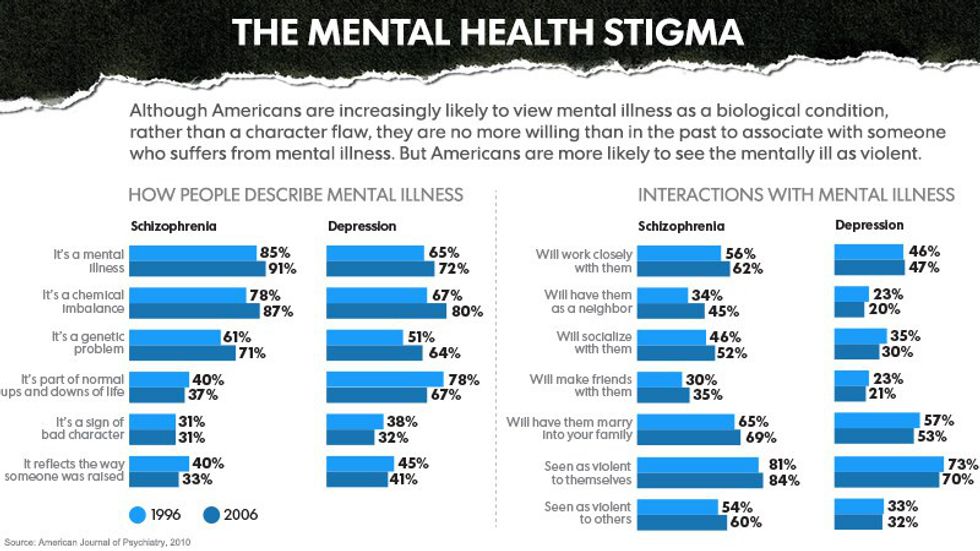Mental illness affects a significant portion of the world’s population. According to the World Health Organization, 1 in 4 people are affected by mental illnesses, and nearly two-thirds of people with a known mental disorder do not seek help from a health professional. This is not limited to the adult population. The National Alliance on Mental Illnesses reports that, in the U.S., 1 in 5 children ages 13-18 have, or will have a serious mental illness.
However, there is serious stigma against mental health support and mental illnesses. Mental health is treated entirely different than physical health. Instead, mental illnesses are treated with dismissal, prejudice and discrimination. People with mental illnesses are discriminated against socially and legally.
The media and entertainment industries continue to perpetuate the stigmas associated with mentall illnesses and spread misinformation. For example, the media disproportionally links mental illness to violence and violent behavior. In a new study from John Hopkins University, researchers determined that, in a random sample of 400 news stories over two decades, “more than one third of all new stories about mental health conditions where linked with violence towards other people.”
On the flipside, data suggests that only 3 to 5 percent of violent acts can be attributed to serious mental illnesses, showing that media coverage of mental illness and violence is grossly exaggerated. Their research also shows that, in their analysis of popular television and print stories, more than half of stories on mental illness mentioned some kind of violent behavior, including violence against others or related to self-harm or suicide. Lead study author Emma McGinty asserted, "Most violence is not caused by people with mental illness."
Contrary to popular belief, mentally ill people are 10 times more likely than the general population to be the victims of violent crime.

These misconceptions heavily damage the image of mental illnesses and promote prejudice and ignorance. Stigma against mental illness can exclude people from access to housing, employment, insurance and medical care.
This isolation can cause people to deny symptoms, delay treatment, limit social activities and refrain from certain daily activities.
This stigma can also cause:
- lost opportunity for work
- trouble finding adequate housing
- inability to live independently
- loss of self esteem
- self-stigmatization
- not seeking professional help
- fear of being “found out”
Mental illnesses are like an other disease. It is not a person's fault they have a mental illness. They should not be blamed for having their mental illness, just like someone who has a disease like cancer should not be blamed. It's not something they can control.
Click here to learn more about stigma against mental illness.



















